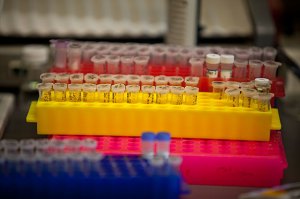Tag: Harvard Medical School
-
Health
Rebuilding the brain’s circuitry
Harvard scientists have rebuilt genetically diseased circuitry in a section of the mouse hypothalamus, an area controlling obesity and energy balance, demonstrating that complex and intricately wired circuitry of the brain long considered incapable of cellular repair can be rewired with the right type of neuronal “replacement parts.”

-
Health
Alleviating radiation sickness
A combination of two drugs may alleviate radiation sickness in people who have been exposed to high levels of radiation, even when the therapy is given a day after the exposure occurred, according to a study led by scientists from Harvard-affiliated Dana-Farber Cancer Institute (DFCI) and Children’s Hospital Boston.
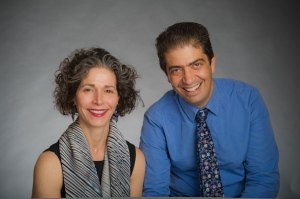
-
Health
Following the clues
Researchers at Harvard Medical School and Children’s Hospital Boston have retraced the evolution of an unusual bacterial infection as it spread among cystic fibrosis patients by sequencing scores of samples collected during the outbreak, since contained.
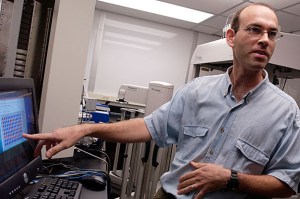
-
Health
Increasing risk for melanoma
A major international study has identified a novel gene mutation that appears to increase the risk of both inherited and sporadic cases of malignant melanoma, the most deadly form of skin cancer.
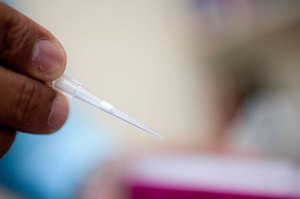
-
Health
Cancer clues from another species
Researchers have decoded the genome of an unlikely ally in the fight against cancer and aging, the naked mole rat, to find clues on why it resists the disease and lives 10 times as long as ordinary mice.

-
Health
Effective treatment of painkiller addiction
Individuals addicted to prescription painkillers are more likely to succeed in treatment with the aid of the medication buprenorphine-naloxone (Suboxone), report McLean Hospital and Harvard Medical School researchers.

-
Health
Survival strategy of cancer cells
A new study led by a scientific team at Beth Israel Deaconess Medical Center and Harvard Medical School has uncovered another key mechanism that cancer cells use as part of their survival strategy — and once again it seems that they are using an enzyme called PKM2 to their advantage.
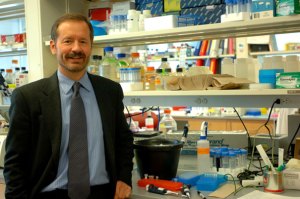
-
Health
A better view of heart disease
In clinical settings, simple 2-D displays of human arteries are more effective than traditional 3-D rainbow models, according to Harvard researchers.

-
Health
New way to explore how life, disease work
Researchers have built a map that shows how thousands of proteins in a fruit fly cell communicate with each other. This is the largest and most detailed protein interaction map of a multicellular organism, demonstrating how approximately one-third of the proteins cooperate to keep life going.

-
Health
Breathing easier with lung regeneration
Harvard researchers have cloned stem cells from the airways of the human lung and have shown that these cells can form into the lung’s alveoli air sac tissue. Mouse models suggest that these same stem cells are deployed to regenerate lung tissue during acute infection, such as during influenza.
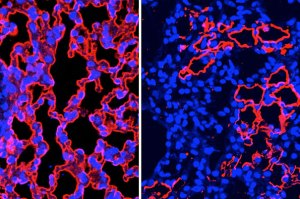
-
Health
A child’s memory in military time
Harvard specialists discussed research on memory development during a seminar aimed at helping military families talk to their children about deployments and homecomings.
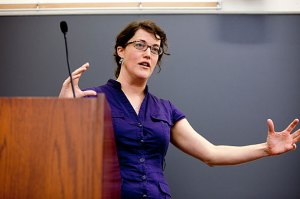
-
Campus & Community
Norman Paul, family therapy pioneer, 85
Norman Paul, an innovator in the use of family therapy to treat mental illness, died on Oct. 14.
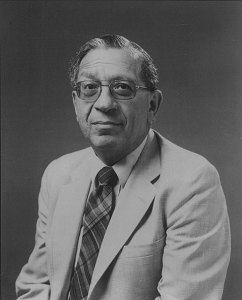
-
Health
Colon cancer connection
Scientists at Harvard-afilliated Dana-Farber Cancer Institute and the Broad Institute have found strikingly high levels of a bacterium in colorectal cancers, a sign that it might contribute to the disease and potentially be a key to diagnosing, preventing, and treating it.

-
Health
Initiative challenges drug crisis
Taking aim at the alarming slowdown in the development of new and lifesaving drugs, Harvard Medical School is launching the Initiative in Systems Pharmacology, a comprehensive strategy to transform drug discovery by convening biologists, chemists, pharmacologists, physicists, computer scientists, and clinicians to explore together how drugs work in complex systems.

-
Health
Harvard surgeons perform hand transplant
Fourteen Harvard surgeons, supported by 36 anesthesiologists, radiologists, nurses, and other medical personnel at Harvard-affiliated Brigham and Women’s Hospital, worked for 12 hours to give a new pair of hands to a 65-year-old Revere man who lost both arms below the elbows and both legs below the knees as a result of a septic infection…
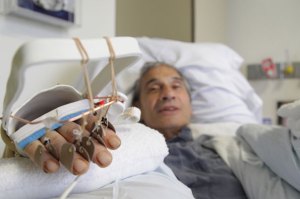
-
Health
Dialing down sickle cell disease
Flipping a single molecular switch can reverse illness in an animal model of sickle cell disease, according to a study by Harvard researchers at Children’s Hospital Boston and Dana-Farber Cancer Institute.
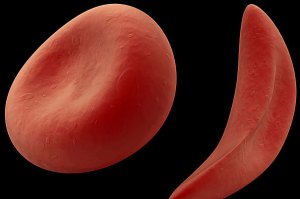
-
Health
Study locally, think globally
A new Harvard Medical School topic helps to train future physicians in the expanding field of global health.
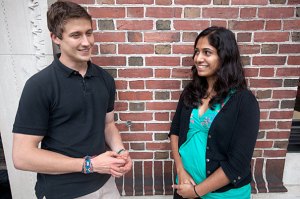
-
Science & Tech
Surgical Anesthesia
Allan M. Brandt Dean, Graduate School of Arts and Sciences Amalie Moses Kass Professor of the History of Medicine, Harvard Medical School Professor of the History of Science, Faculty of Arts and Sciences
-
Campus & Community
Sports Helmets, Catcher’s Mask
Thomas J. Gill IV Associate Professor of Orthopedic Surgery, Harvard Medical School Chief, MGH Sports Medicine Service
-
Science & Tech
Organ Transplant
Nicholas L. Tilney Francis D. Moore Distinguished Professor of Surgery, Harvard Medical School
-
Health
Wyss Institute project targets sepsis
The Wyss Institute for Biologically Inspired Engineering at Harvard has been awarded a $12.3 million, four-year grant from the Defense Advanced Research Projects Agency to develop a treatment for sepsis, a commonly fatal bloodstream infection.
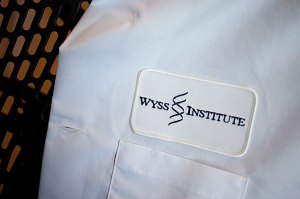
-
Nation & World
Sirleaf wins Nobel Peace Prize
Liberian President Ellen Johnson Sirleaf, a Harvard Kennedy School alumna, is one of three recipients of the 2011 Nobel Peace Prize for her efforts to promote peace, democracy, and women’s rights.

-
Health
Health care disparities for disabled
Two decades after the Americans with Disabilities Act went into effect, people with disabilities continue to face difficulties meeting major social needs, including obtaining appropriate access to health care facilities and services.
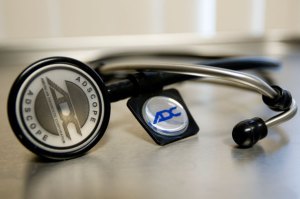
-
Health
Biomarker for Huntington’s identified
In a new research paper published in the Proceedings of the National Academy of Sciences Early Edition online, Harvard-affiliated researchers identify a transcriptional biomarker that may assist in the monitoring of Huntington’s disease activity and in the evaluation of new medications.
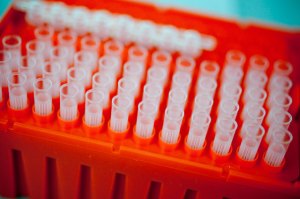
-
Health
On the cusp of new transplant era
With the advent of new techniques and anti-rejection drugs, organ transplantation stands on the threshold of a new era, where once-radical surgeries such as face transplants will seem routine, says Bohdan Pomahac, the Brigham and Women’s Hospital surgeon and Harvard Medical School professor who led recent face transplant surgeries.
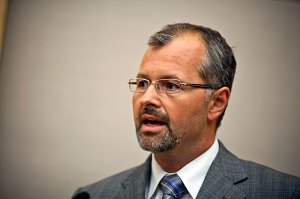
-
Health
Major study on schizophrenia, bipolar
Looking at large samples, an international consortium — that included involvement by scientists at the Broad Institute of Harvard and MIT and Harvard-affiliated Massachusetts General Hospital (MGH) — has identified 10 genetic risk factors that contribute to either schizophrenia or bipolar disorder and discovered strong evidence for three genes being implicated in both diseases.
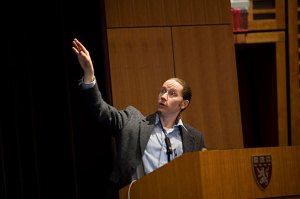
-
Campus & Community
Eight researchers win PECASE awards
President Barack Obama named 94 researchers as recipients of the Presidential Early Career Awards for Scientists and Engineers, including eight from Harvard.
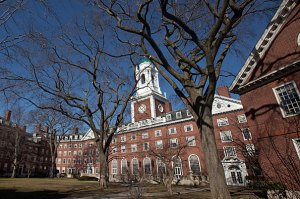
-
Campus & Community
Two named University Professors
Rebecca M. Henderson of the Harvard Business School and Douglas Melton of the Faculty of Arts and Sciences and the Harvard Medical School were named University Professors in recognition of their dedication to teaching and scholarship that crosses academic boundaries.




